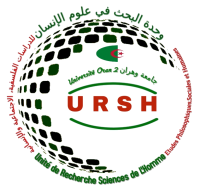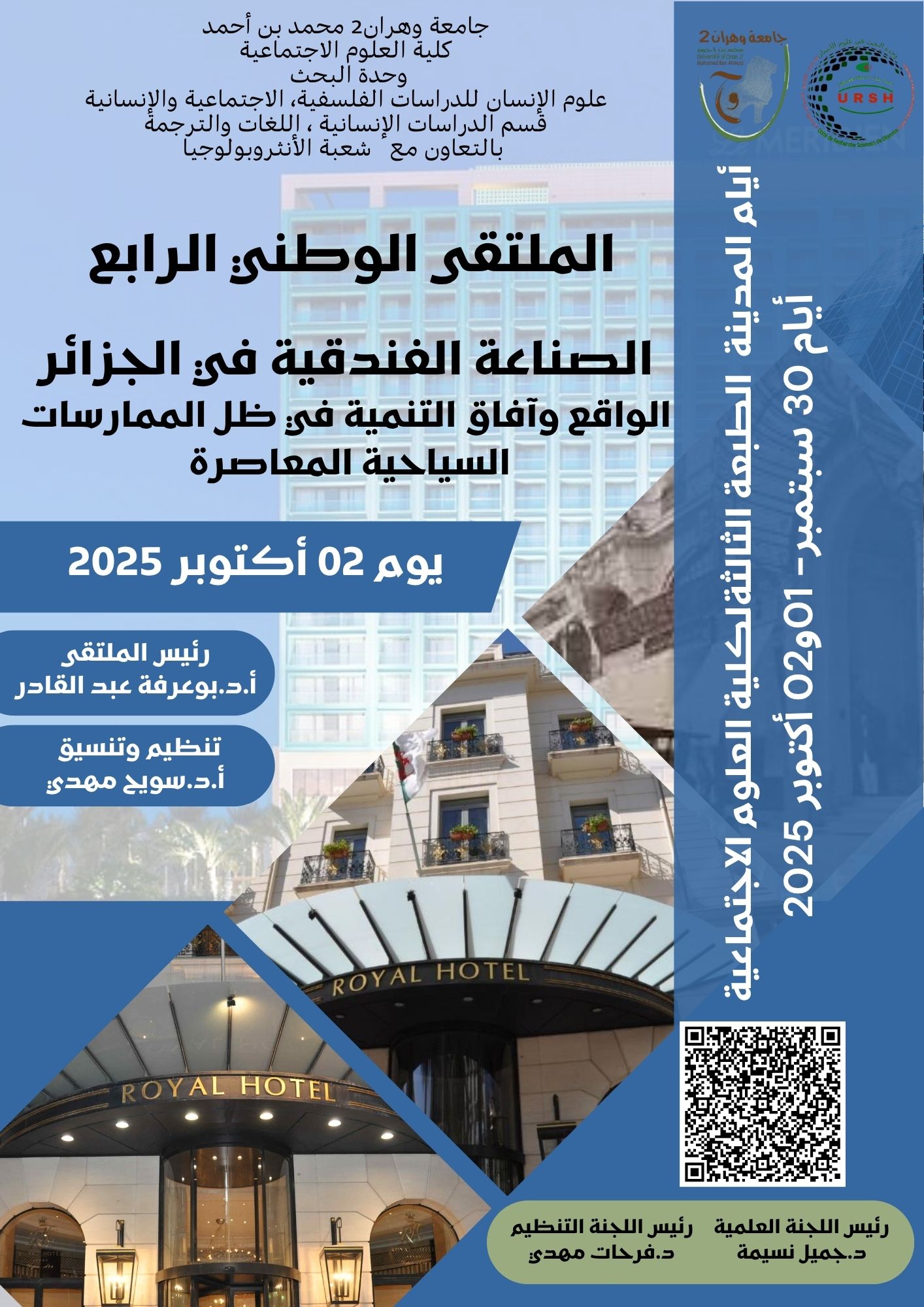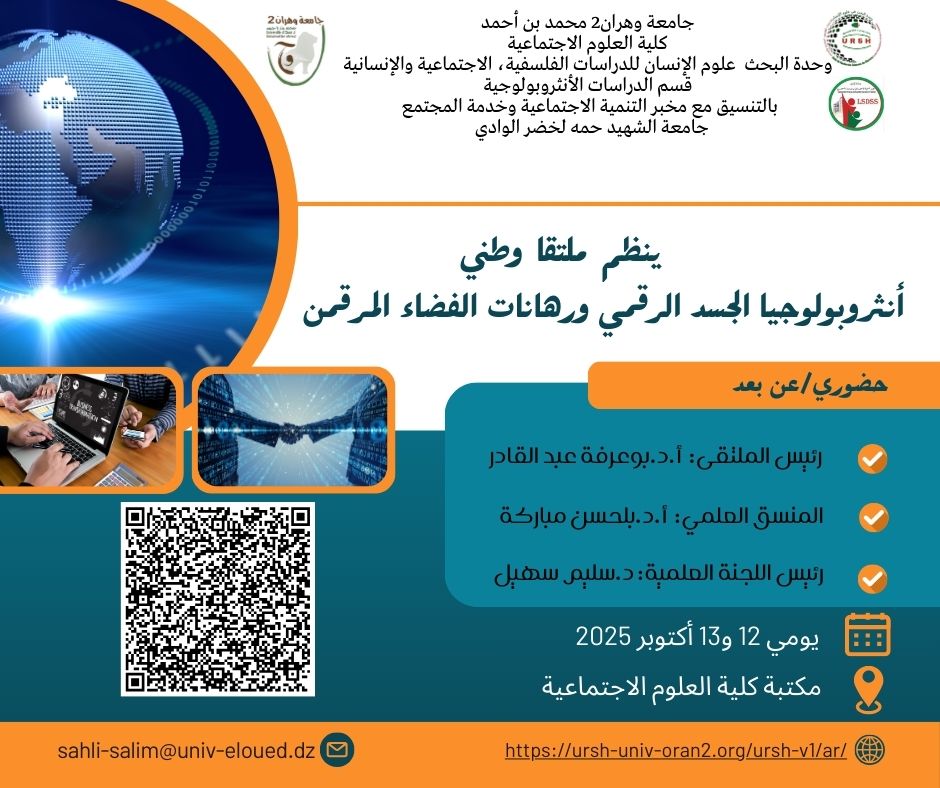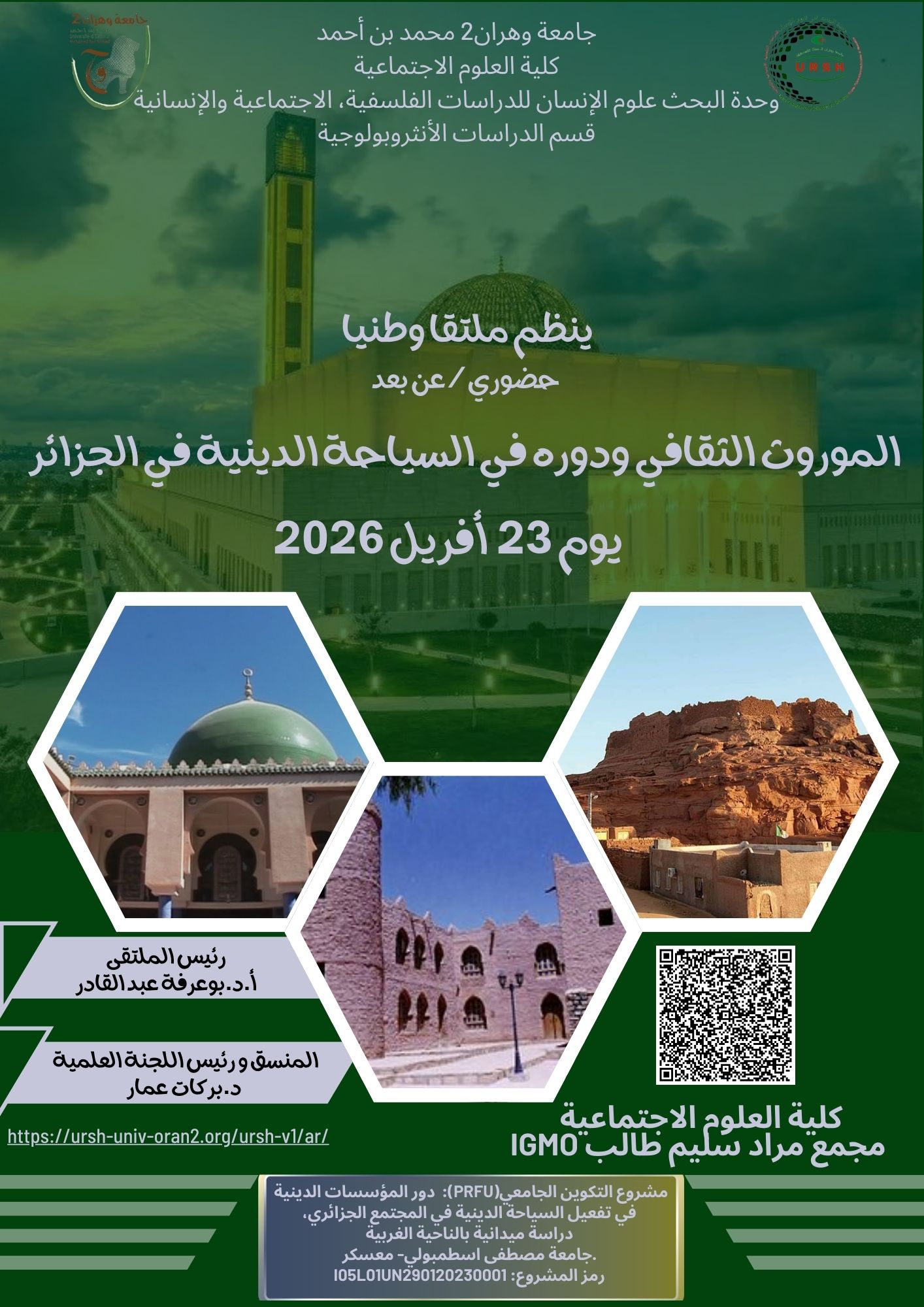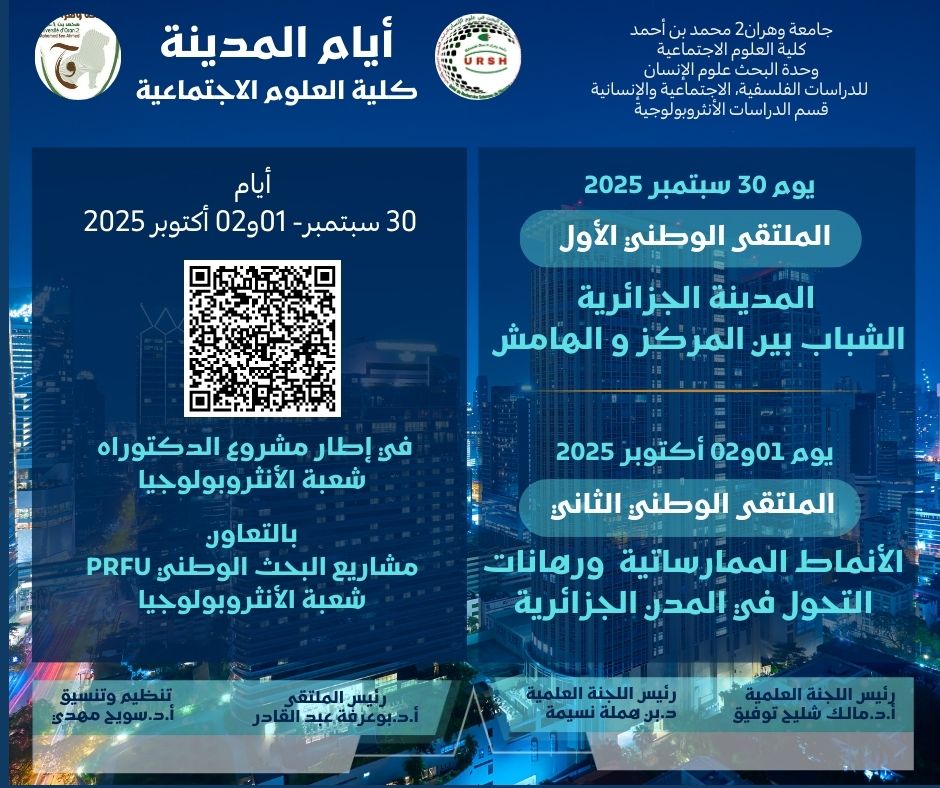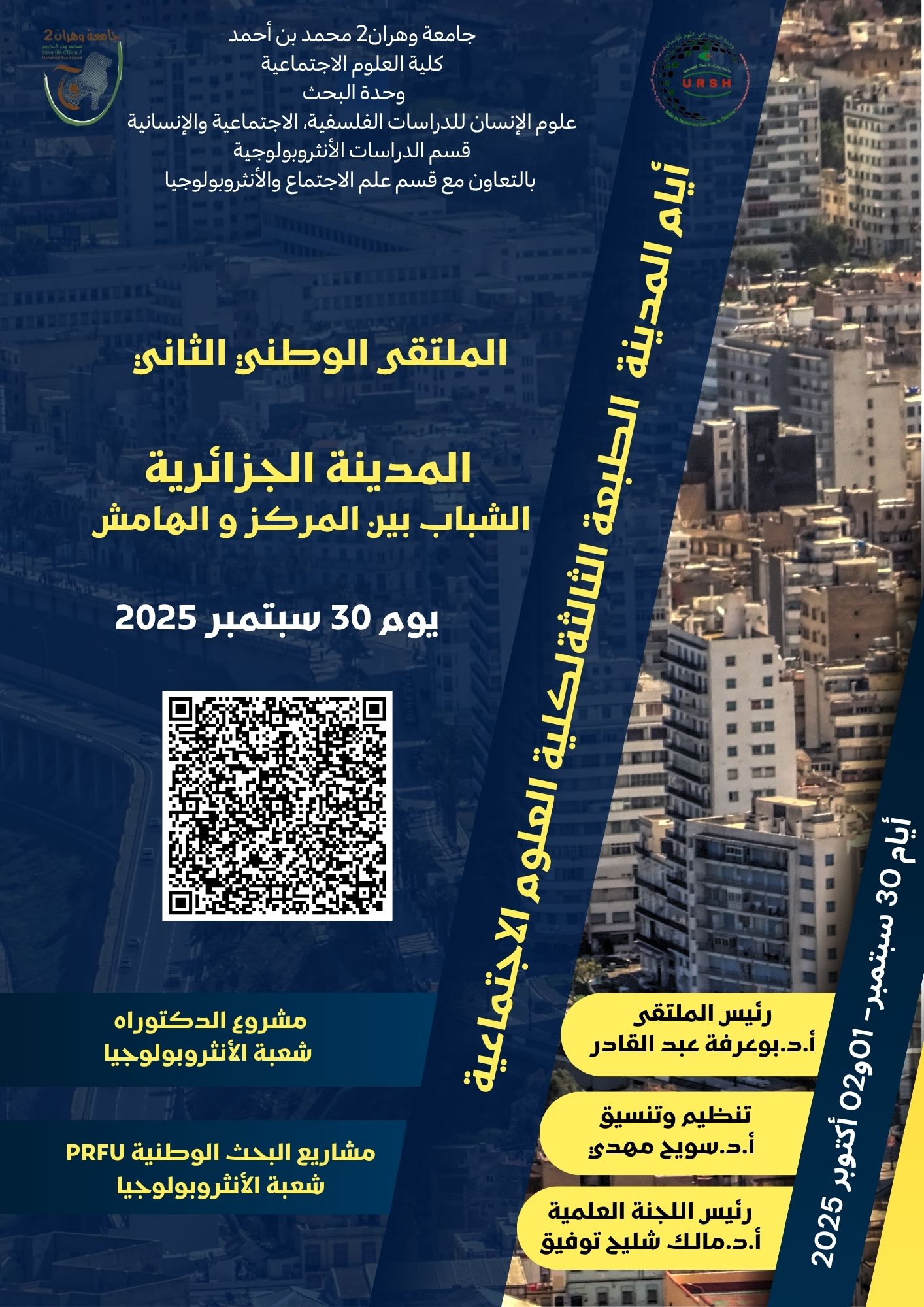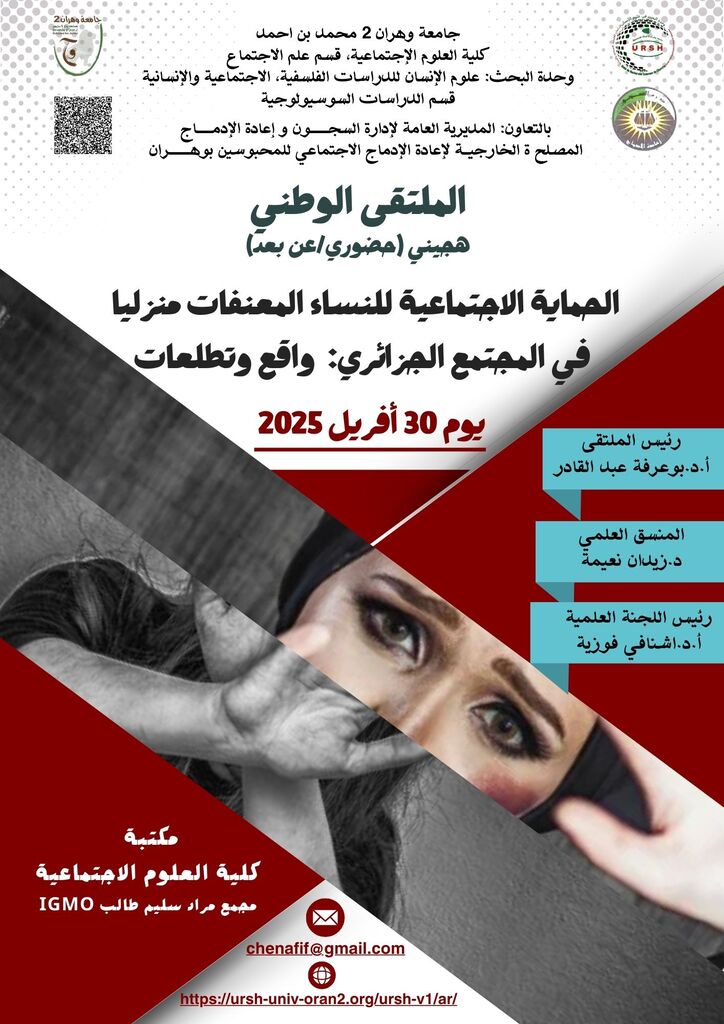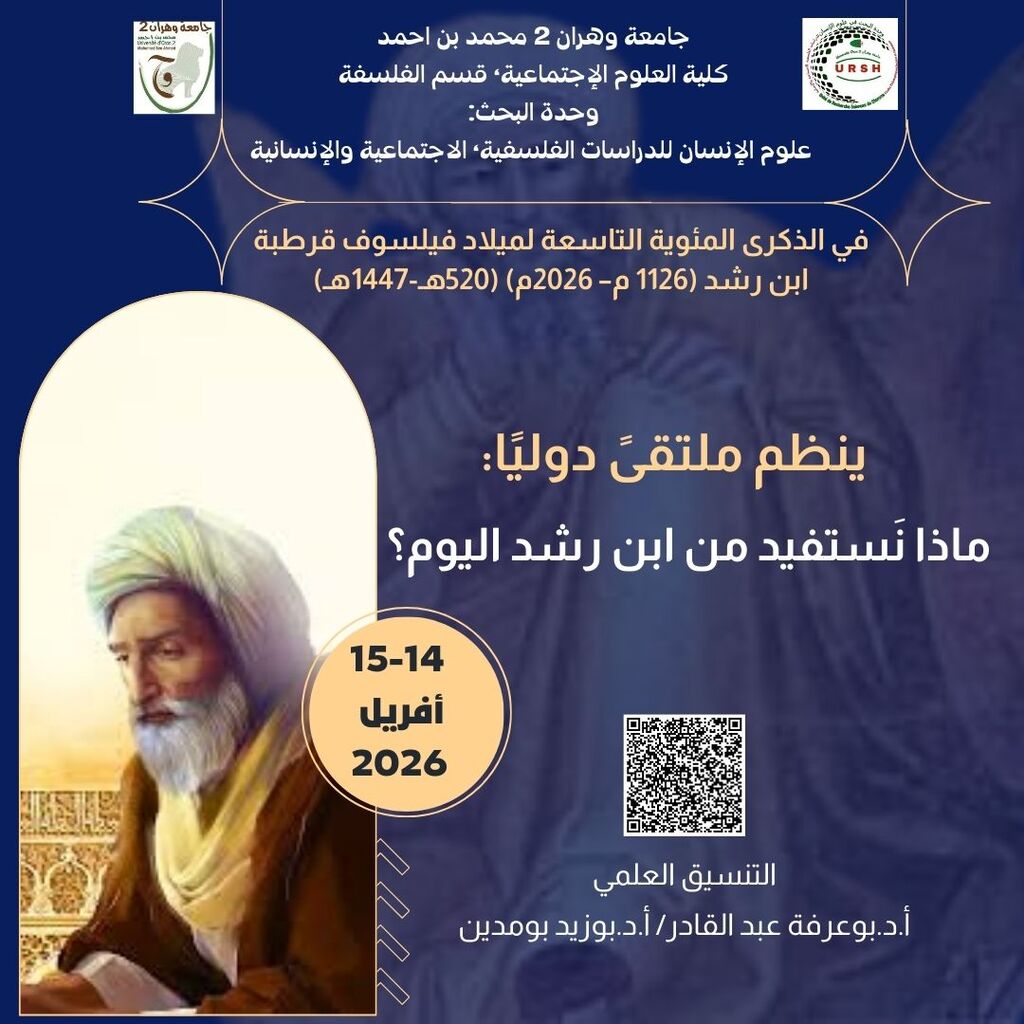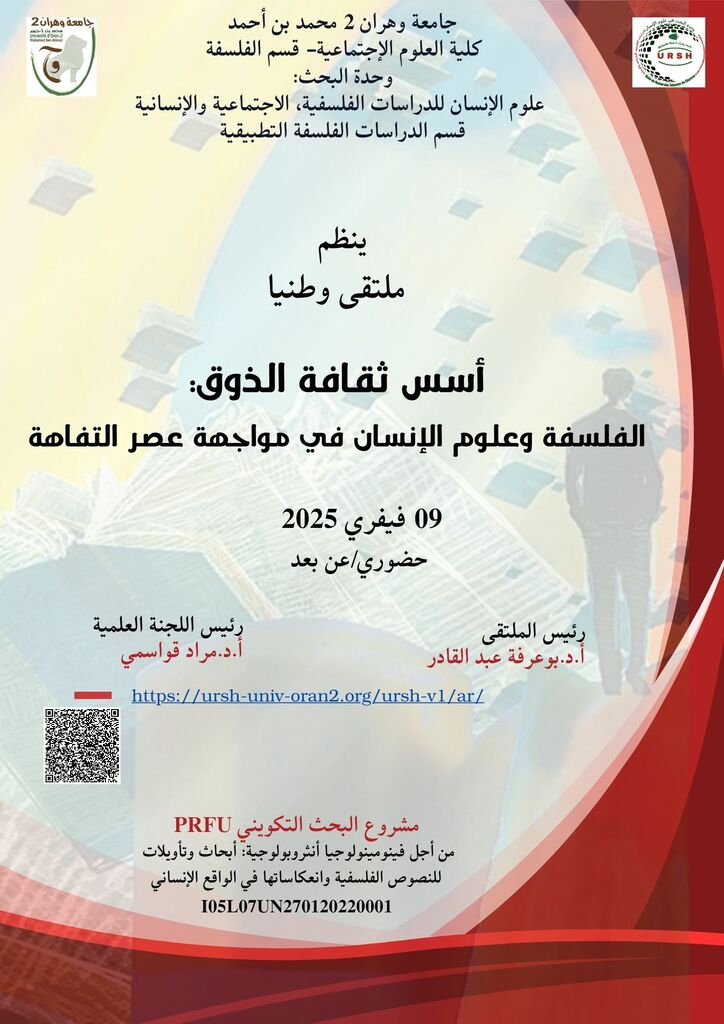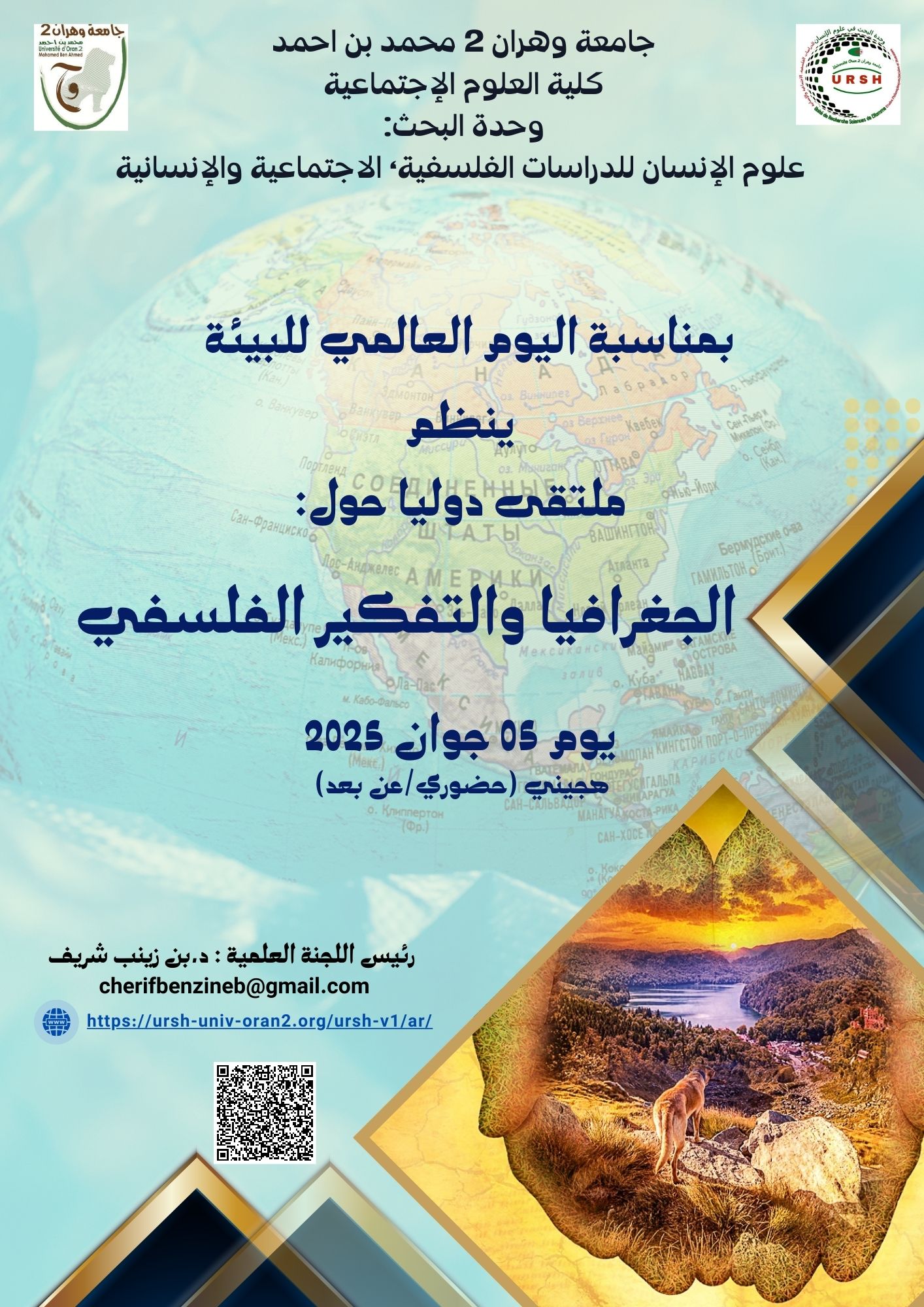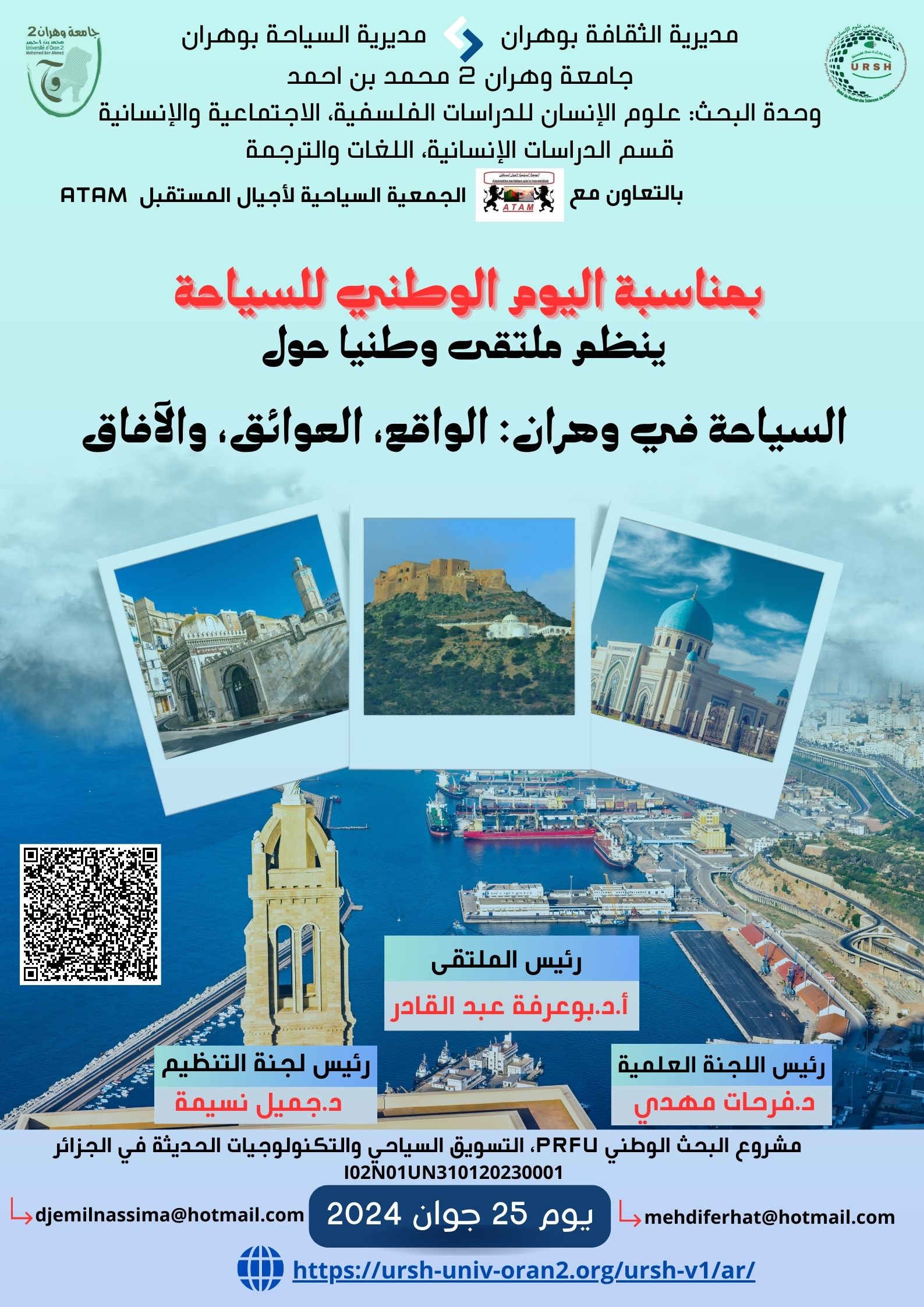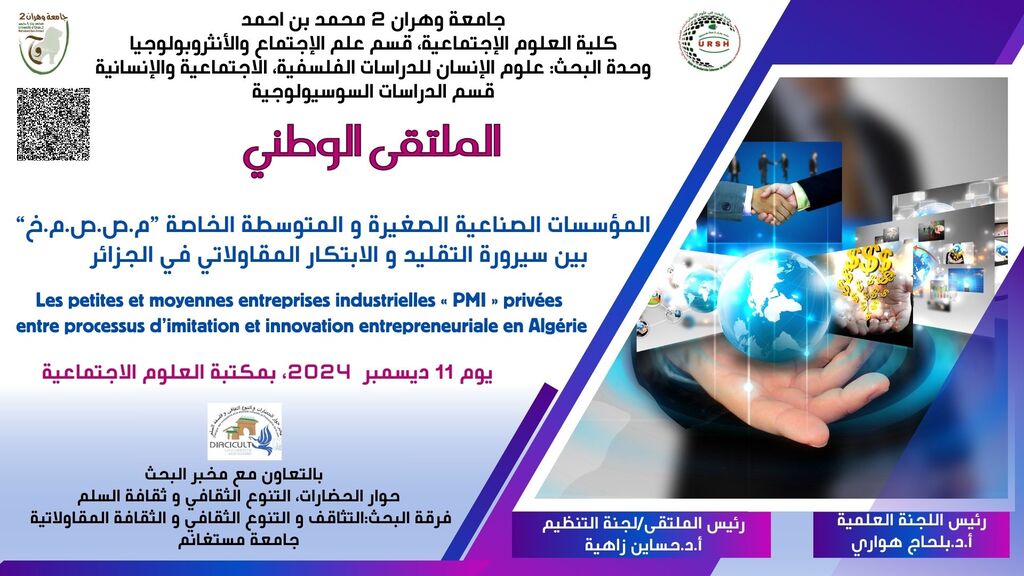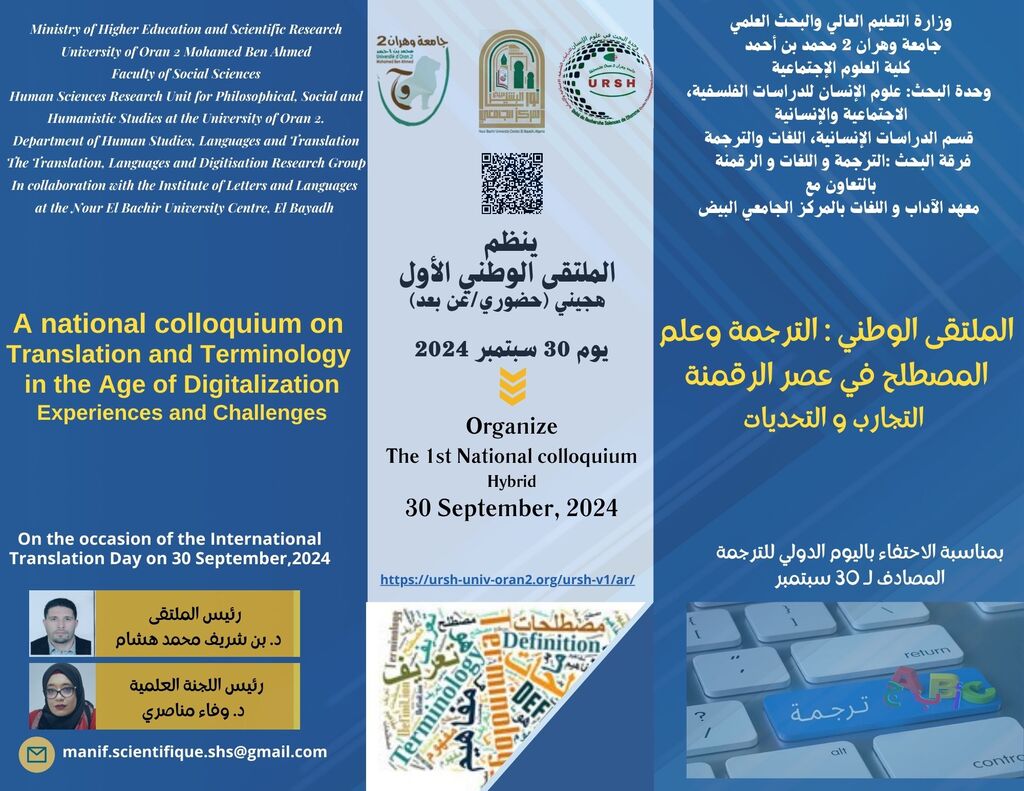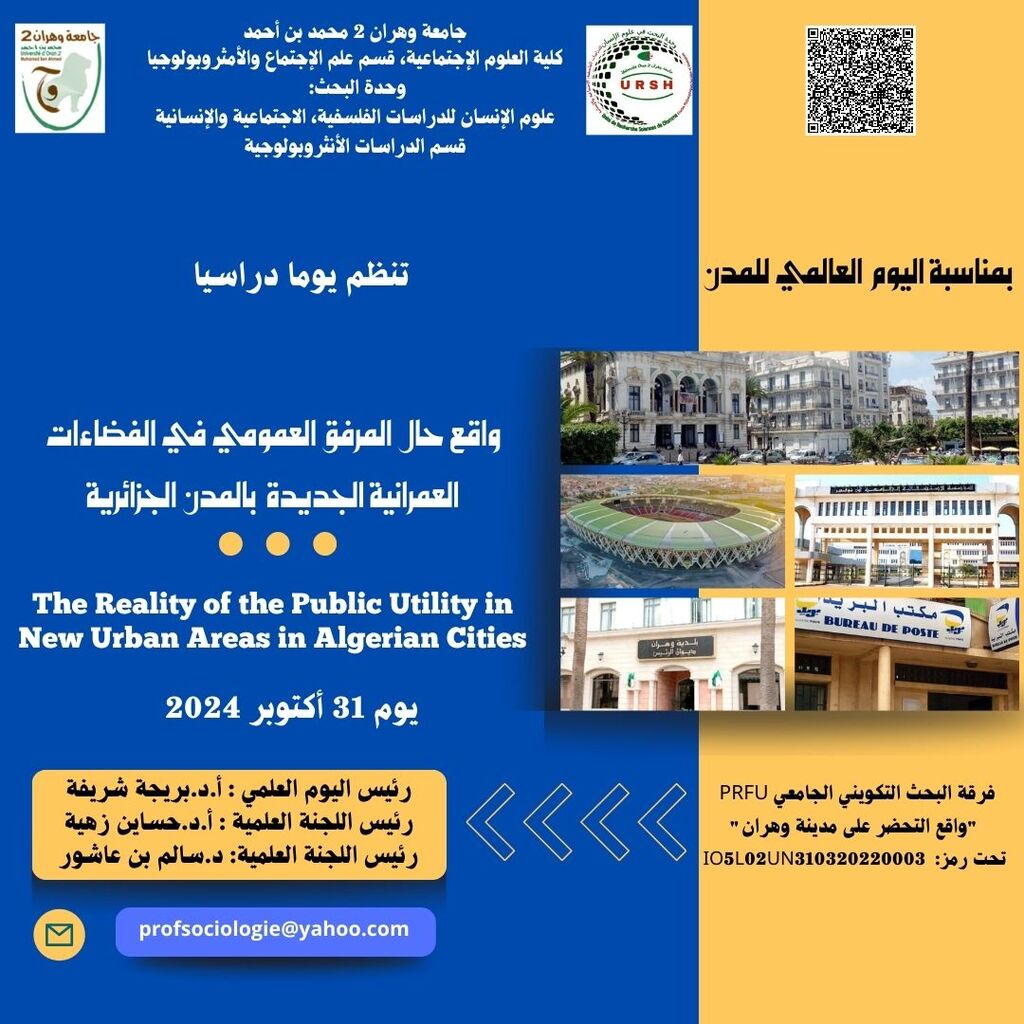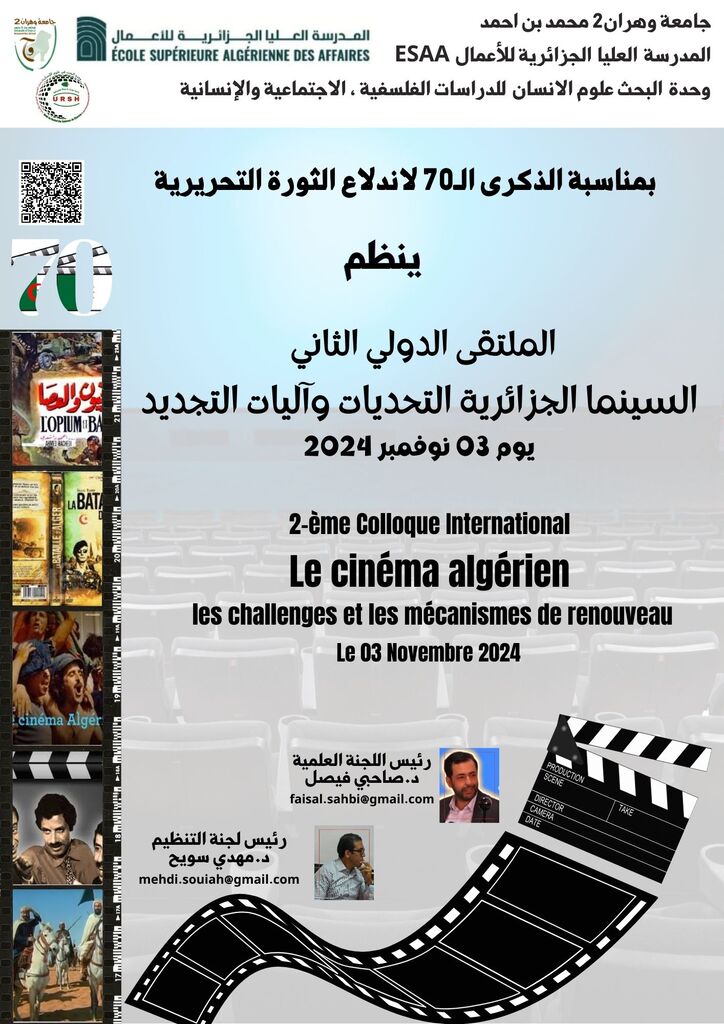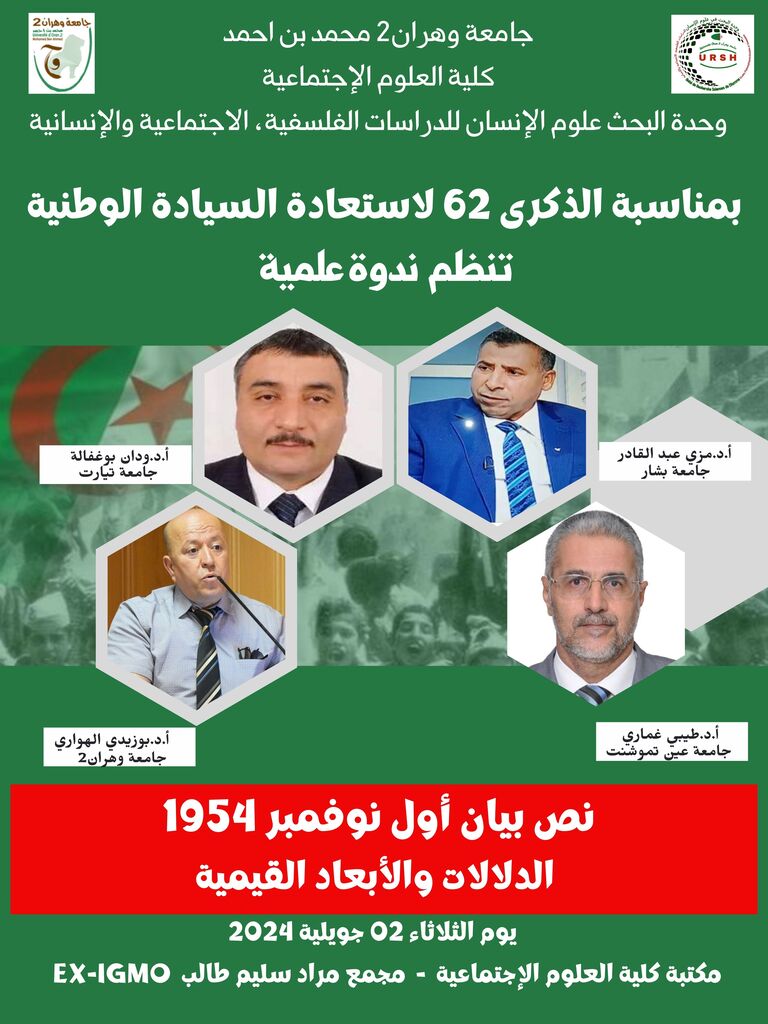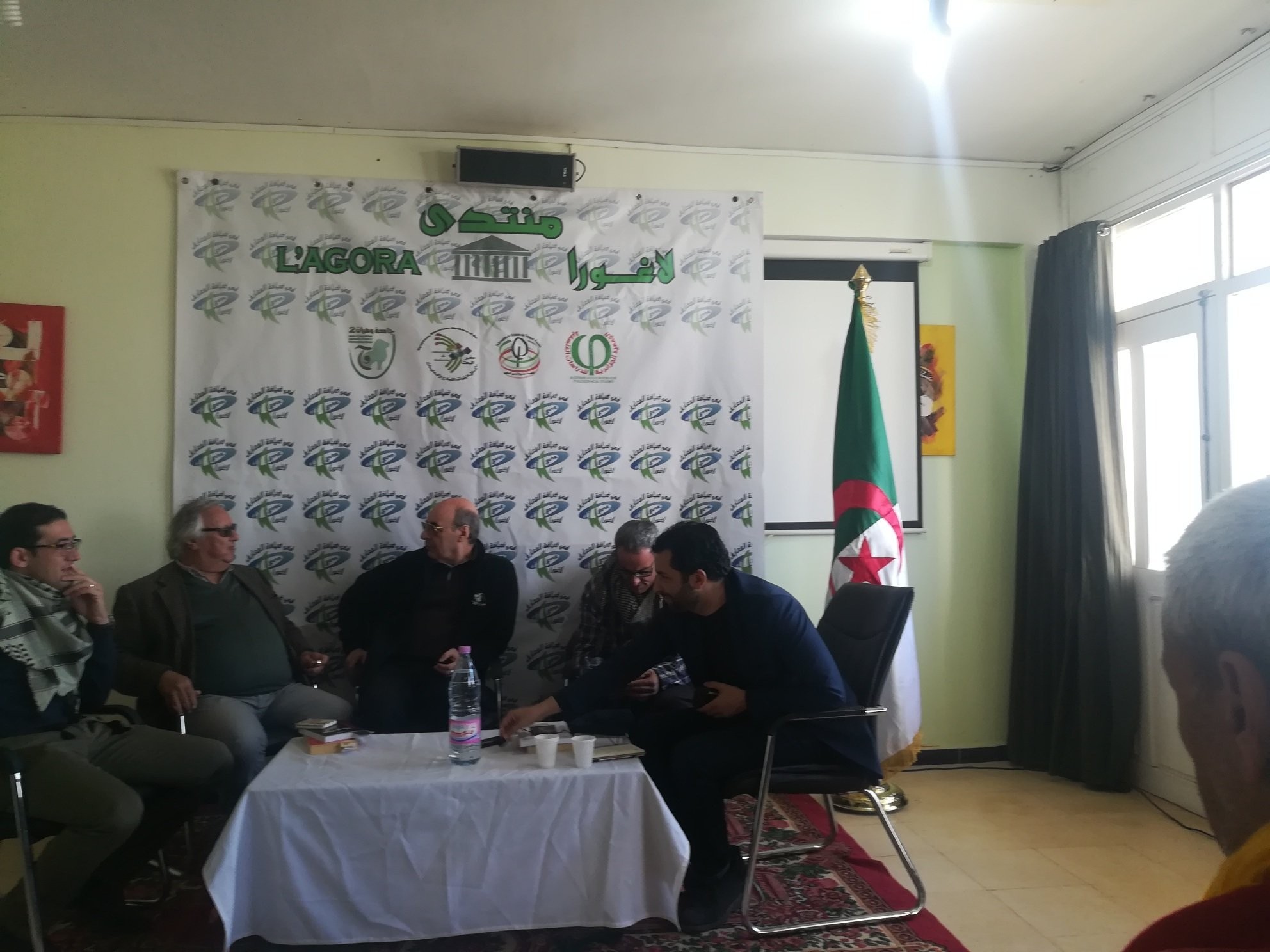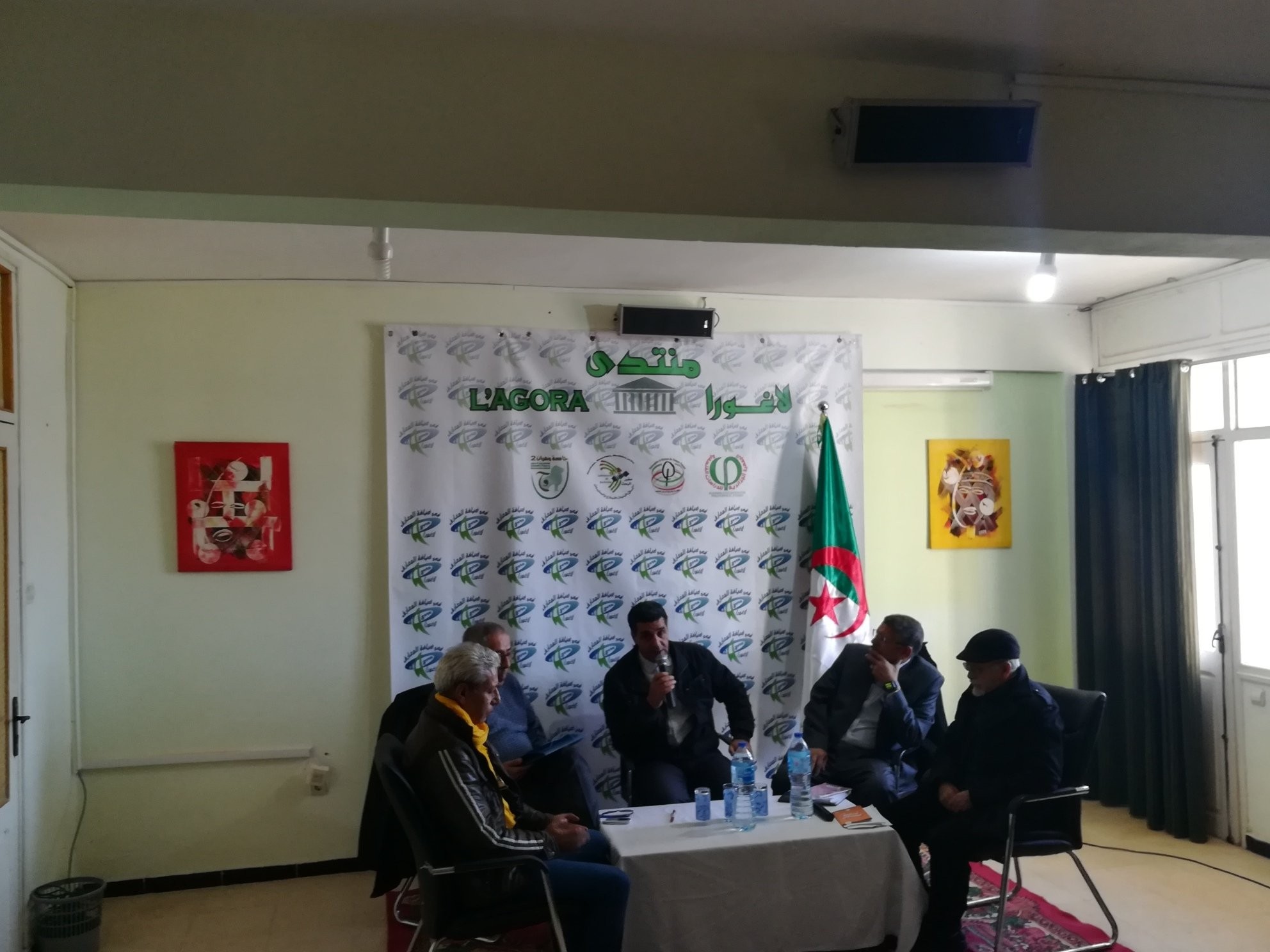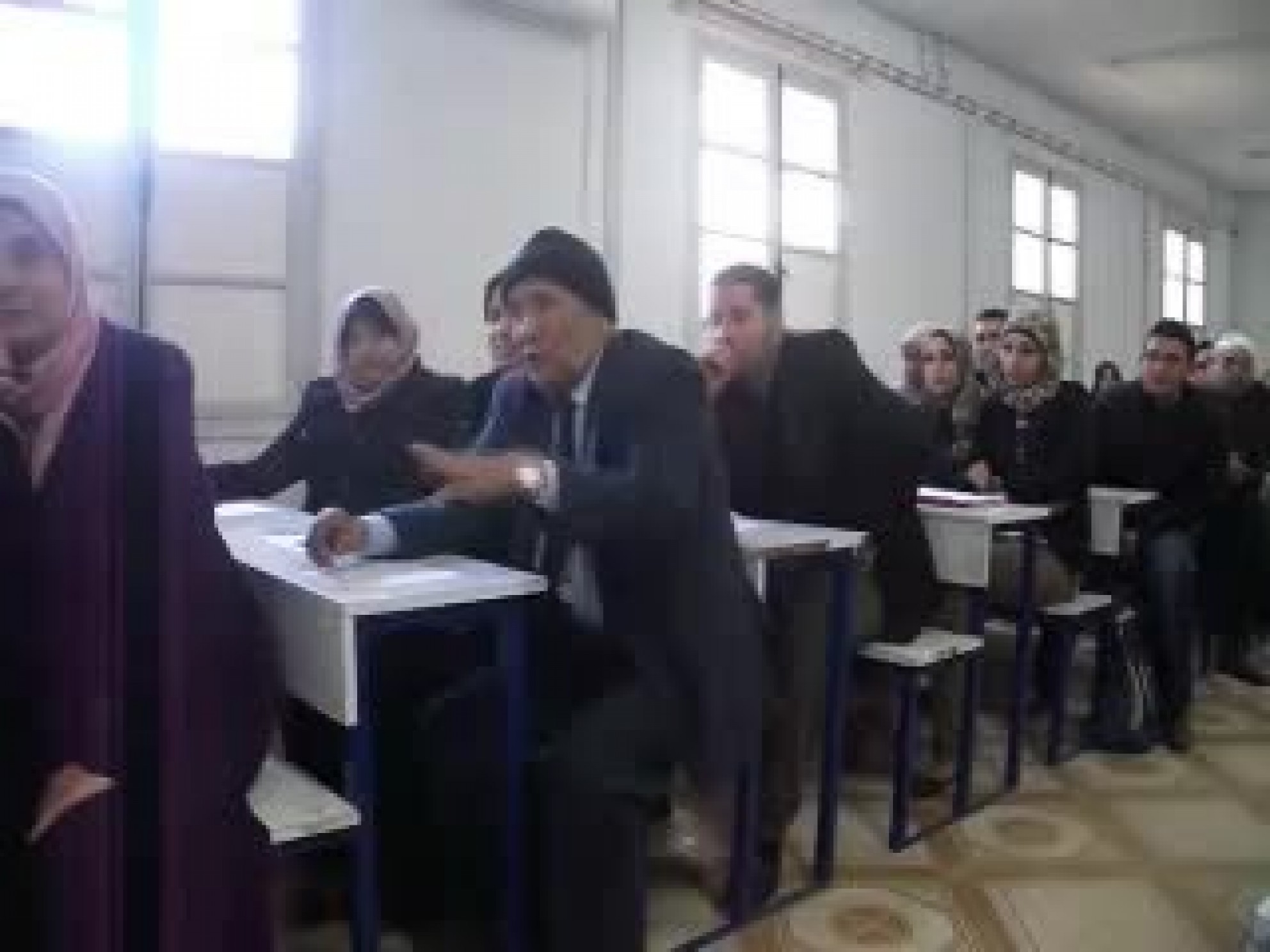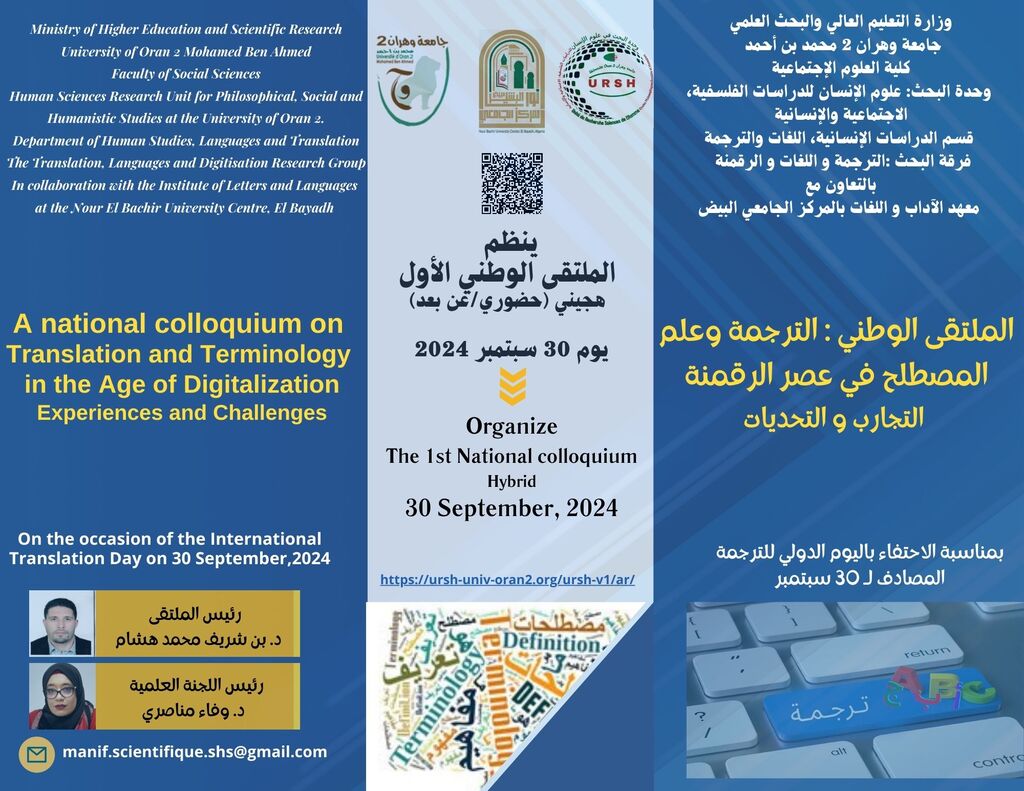
الملتقى الوطني: الترجمة وعلم المصطلح في عصر الرقمنة: التجارب و التحديات
تنظم فرقة " الترجمة و اللغات و الرقمنة"
إشراف مدير الوحدة علوم الإنسان للدراسات الفلسفية، الاجتماعية والإنسانية، أ.د بوعرفة عبد القادر
ملتقى وطنيا بمناسبة الاحتفاء باليوم الدولي للترجمة المصادف لـ 30 أيلول
الترجمة وعلم المصطلح في عصر الرقمنة: التجارب و التحديات
الديباجة:
تُعرف اللغة العربية بحركيتها التوالدية بفضل خاصية الاشتقاق التي تُسهم في إنتاج عدد هائل من الكلمات-بما فيها المصطلحات- من عدد غير محدود من الجذور العربية، الأمر الذي يخول لها ولوج عالم الرقمنة الذي لم يعد أمراً رفاه بل ضرورة ملحة تمليها متطلبات العصر ، وفتح آفاق كثيرة تُعدّ اليوم عوائق في الدراسات اللغوية و وصناعة المعاجم والترجمة المصطلحية ، هذه الأخيرة التي لازالت إلى يومنا هذا تعاني من إشكالات جمّة، أرقت الباحثين وعرقلت مسار المترجمين، ومن خلال التطور المبهر الذي تشهده التكنولوجيا، يمكن الاستفادة ممّ توصلت إليه اللسانيات الحاسوبية لاستحداث أساليب متطورة لضبط المصطلحات وتنميطها، فضلا عن الإفادة في مجال الإحصاء المصطلحي .
يسعى هذا الملتقى إلى تسليط الضوء على الإشكالات التي لا يزال المصطلح حبيسها، وكيفية نقله عن طريق الترجمة، ومعالجته آليا للتخفيف من حدة الوضع المتأزم من خلال التعويل على الرقمنة ولسانيات المدونات الحاسوبية. كما يسعى إلى الكشف عن الأدوار المنوطة بالترجمة في ظل تصاعد المنصات الرقمية التي تساعد المترجم في عمله و كذا بلورة مفهوم " المترجم الرقمي" ، فالرقمنة أصبحت تفرض نفسها على الترجمة فمن الضروري الاستفادة من هذه الطفرة التكنولوجية مع احترام أخلاقيات العمل من طرف المترجم.
الإشكالية:
-كيف يمكن للسانيات الحاسوبية الحدّ من توتر الظواهر اللغوية العربية؟
- ما مدى نجاعة تطبيقات الحوسبة اللغوية في ترقية البحث في حقلي المصطلح والترجمة من وإلى اللغة العربية؟
-هل بإمكان اللسانيات الحاسوبية تنميط المصطلحات في اللغة العربية وتوحيدها؟
- كيف ستتعامل ممارسي الترجمة و منظريها مع تحديات الذكاء الاصطناعي و ماهي الأدوار المنوطة بمهنة المترجم في ظل تزايد المنصات الرقمية؟
أي دور مرتقب للترجمة الآلية بمساعدة الحاسوب في حقول الترجمة : تعليمية، نقد الترجمات، الترجمات العلمية و غيرها؟
محاور الملتقى:
المحور الأول: حوسبة المصطلح في ظل التطور المعلوماتي
المحور الثاني: المعجم العربي الرقمي: مشكلات لغوية وتقنية
-المحور الثالث: برامج الترجمة وتطبيقاتها: ما لها وما عليها.
المحور الرابع: المصطلح في ضوء اللسانيات الحاسوبية.
المحور الخامس: اللسانيات الحاسوبية والصناعة المصطلحية والمعجمية
المحور السادس: مهنة المترجم في ظل التطورات التكنولوجية
لغات الملتقى : العربية، ، الإنجليزية ، الفرنسية
مواعيد :
انعقاد المؤتمر:30-09 / 2024.
آخر موعد لاستلام الملخصات: 2024/06/30
رد اللجنة العلمية: 2024/07/10
آخر موعد لاستلام المداخلات: 2024/08/01
ملاحظة: تنشر المداخلات في شكل فصل من كتاب محكم بحيث سيتم مراسلة المؤلفين المقبولة مداخلاتهم بالشروط الشكلية و المنهجية لاحقا.
ترسل المقترحات إلى: عنوان البريد الإلكتروني هذا محمي من روبوتات السبام. يجب عليك تفعيل الجافاسكربت لرؤيته.
رئيس الملتقى : د. بن شريف محمد هشام.
رئيس اللجنة العلمية : د/ وفاء مناصري
إستمارة التسجيل
⇓⇓
https://forms.gle/QrdL7GoKeQtBxpu2A
The Translation, Languages and Digitisation Research Group, headed by
Pr. Bouarfa Abdelkader, Director of the Human Sciences Research Unit for Philosophical, Social and Humanistic Studies
In collaboration with the Institute of Letters and Languages at the Nour El Bachir University Centre, El Bayadh
Organise:A national colloquium on "Translation and terminology in the digital age - experiences and challenges
Argument
The Arabic language is known for its generative dynamics thanks to the derivation that characterizes it and which contributes in a double lexical and terminological dimension; to the production of a large number of words and terms from an untold number of Arabic roots. Such functionality allows it to enter the digital age, which is no longer a luxury but rather a necessity, an urgency dictated by the demands of the modern age. An era which is multiplying the horizons and research opportunities offered to linguistic studies, to the design of terminological dictionaries and to the translation of the term thanks to the advent of new technologies which affect the various disciplines relating to applied languages, including translation. The latter, it should be remembered, is still struggling to cope with the difficulties encountered by researchers and translators. It should also be noted that advances in computational linguistics can be used to develop methods for the normalization and standardization of terms, in addition to its interest in the development of terminology statistics.
Interest in terminological dictionaries and lexicons arose with the emergence of terminology as a result of the dynamics of knowledge transfer around the world, thus giving rise to a considerable terminological flow. Since electronic dictionaries and online terminology databases are of paramount importance in updating the treasures of the Arabic language, it has become imperative for terminologists and translators to take advantage of the new technologies and their IT tools to lay the foundations of modern Arabic linguistics and to promote the design of terminological dictionaries and lexicons capable of accounting for this enormous lexical and terminological flow resulting from the dynamics of research in the various forms of human knowledge.
This conference aims to shed light on the problems of the term and on the contribution of neural translation in its transfer and automatic processing, as well as that of digitization and corpus linguistics in the design of efficient electronic dictionaries and lexicons. This scientific event is also an opportunity to discover what is being done around the world in the field of linguistic technologies and machine translation, both statistical and neural.
Problematic:
1- How can computational linguistics contribute to the stabilization of the Arabic language?
2- To what extent can computational linguistics promote terminological and translational research from and into Arabic?
3- Is computational linguistics able to standardize the Arabic term?
Axes:
Axis 1: Information technology and automatic term processing
Axis 2:Arabic digital lexicon: linguistic and technical problems
Axis 3: Translation software and its application: advantages and disadvantages
Axis 4:Term and computational linguistics.
Axis 5:Terminology, lexicology and computational linguistics.
Axis 6:Mechanisms and tools for designing electronic lexicons
Axis 7: Neural and statistical machine translation
Conditions of participation:
- Papers must be written in accordance with the standards of scientific research.
- Proposals must include two abstracts in Arabic and English not exceeding 300 words.
- The various contributions will be in line with the framework of reflection of the axes of the symposium. They should not contain less than 10 pages and more than 15 pages including references.
- Languages of the conference:Arabic - French - English
- Papers must be written in Word format, Traditional Arabic, font 14 for Arabic and Times New Roman, font 12 for French and English.
- Paper proposals should be sent to : عنوان البريد الإلكتروني هذا محمي من روبوتات السبام. يجب عليك تفعيل الجافاسكربت لرؤيته.
Time table :
-Deadline for submission of proposals: 30/06/2024
-Notification of acceptance of proposals: 10/07/2024
-Submission of papers: 01/08/2024
-Date of the conference: 30September 2024
- التفاصيل
- كتب بواسطة: مسير الموقع
- انشأ بتاريخ: 22 ماي 2024
